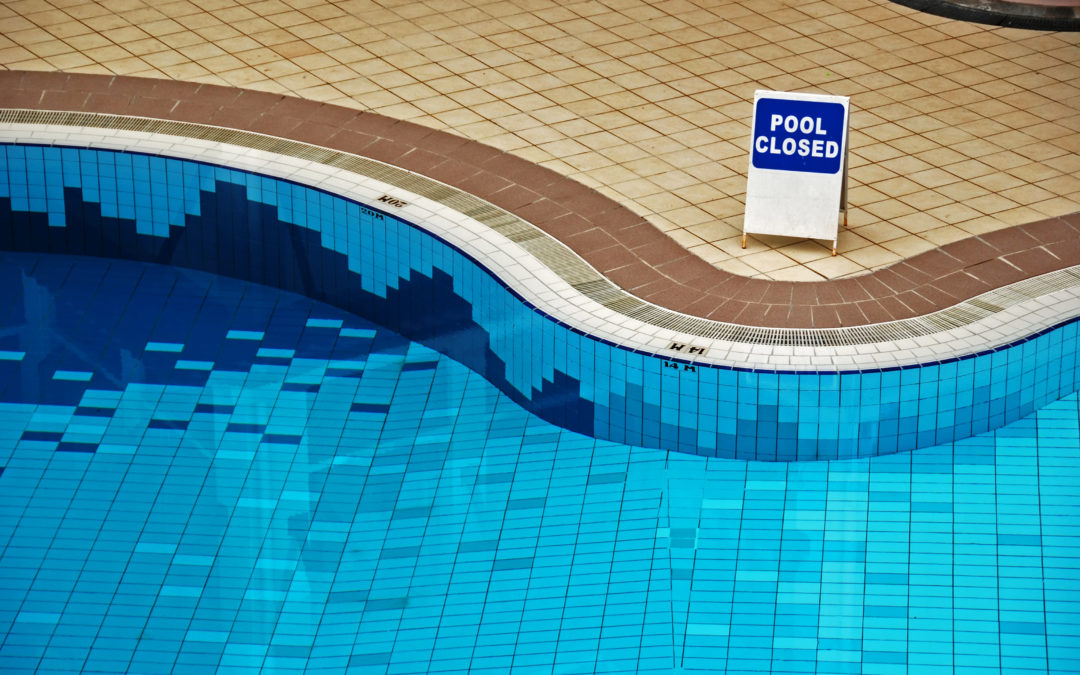Pools might be one of the most desired amenities in community associations, but reopening pools in the middle of a pandemic isn’t so simple. That’s what CAI discovered when surveying board members, community managers, and other stakeholders in the industry to share their approach to pools this year.
Only 7% of respondents reported opening their community’s pool on time, while 40% said their pool remains closed. More than 1,000 respondents representing over 2,200 communities from 39 states in the U.S. responded to CAI’s Community Associations & COVID-19: Pool Openings survey, which was conducted in late June and early July.
Albert Pellegrino, CMCA, AMS, with P&A Management in Hamilton, N.J., is keeping pools closed for several reasons: lack of insurance coverage; fear of exposure to legal liability; inability to meet local, state, or federal requirements for pool opening; and fear of spreading COVID-19.
“Without insurance coverage, the associations are without a safety net to protect themselves from COVID-related suits,” he says. “Better guidance is needed to assist community associations on how to protect themselves. Clear guidance has not been provided by the state or federal government for amenities that have been allowed to reopen.”
Pellegrino isn’t alone, especially in New Jersey. More than 80% of respondents in the Garden State reported their pool is closed. The states where respondents reported the next highest numbers of pool closures were Maryland (56%) and Pennsylvania (55%). These three states had some of the more prolonged and restrictive stay-at-home orders.
By contrast, fewer than 10% of respondents in Florida, 24% in Texas, and 29% in North Carolina reported their pool is closed. These states had some of the shorter and least restrictive stay-at-home orders.
Across the country, the leading factors for communities to not open their pool as regularly scheduled were fear of exposure to legal liability (58%), fear of spreading COVID-19 (50%), and attorney recommendation (48%).
The fear of legal liability is largely due to the insurance coverage typically held by community associations. General liability and directors and officers (D&O) policies often have an exemption of coverage for viruses or pandemics. With this void in coverage, insurance professionals and community association lawyers are advising their community association boards and managers to keep the facilities closed.
CAI continues to urge Congress and state legislators to pass legislation that provides liability protections to community associations if they define a method for opening pools and other facilities while making good faith efforts to follow local, state, and federal guidelines, including guidance from the Centers for Disease Control and Prevention. North Carolina and Georgia have done just that.
While these new laws are helpful, associations may continue to choose to keep pools closed. Further, there are some local and state regulations that may restrict communities from opening pools or cause compliance to be too challenging.
The communities that opened their pool reported instituting several new procedures, such as prohibiting guests (60%); requiring residents to sign a liability waiver (40%); and requiring residents to bring their own lounge chairs (37%). Expenses related to pool operation and maintenance are higher than budgeted due to COVID-19 in roughly 35% of communities.
For some, nothing would feel better right now than a dip in their community association pool, but opening, maintaining, and promoting safety in the middle of a pandemic aren’t so simple after all.
>>Find more research, resources, FAQs, and best practices related to COVID-19.


